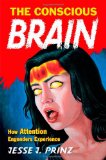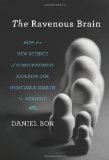$2.99 TED book for Kindle: ‘Brain Power: From Neurons to Networks’ (Kindle Single) by Tiffany Shlain
November 16, 2012
$2.99 TED book for Kindle: Brain Power: From Neurons to Networks (Kindle Single) by Tiffany Shlain amazon.com/gp/product/B00… via @amazon
— Debbie A Foster (@mymindonbooks) November 17, 2012
Book description from the publisher:
While many wonder what the pervasive use of technology is doing to our overloaded mental circuits, ‘Brain Power: From Neurons to Networks’ ponders that question in another way: can cutting-edge neurological research teach us anything about how we shape the electronic global “brain” of the Internet? Can we share lessons between neurons and networks in the way we nurture and develop both? This ebook was created in conjunction with a 10-minute film by author Tiffany Shlain, also titled ‘Brain Power,’ which uses an innovative, participatory filmmaking process called Cloud Filmmaking. The TED Book expands on the ideas in the film by sharing deeper research, videos, graphics, and links that explore the increasingly intertwined worlds of advanced neuroscience research and technology. This release marks the first time a film and TED Book have been released together.






